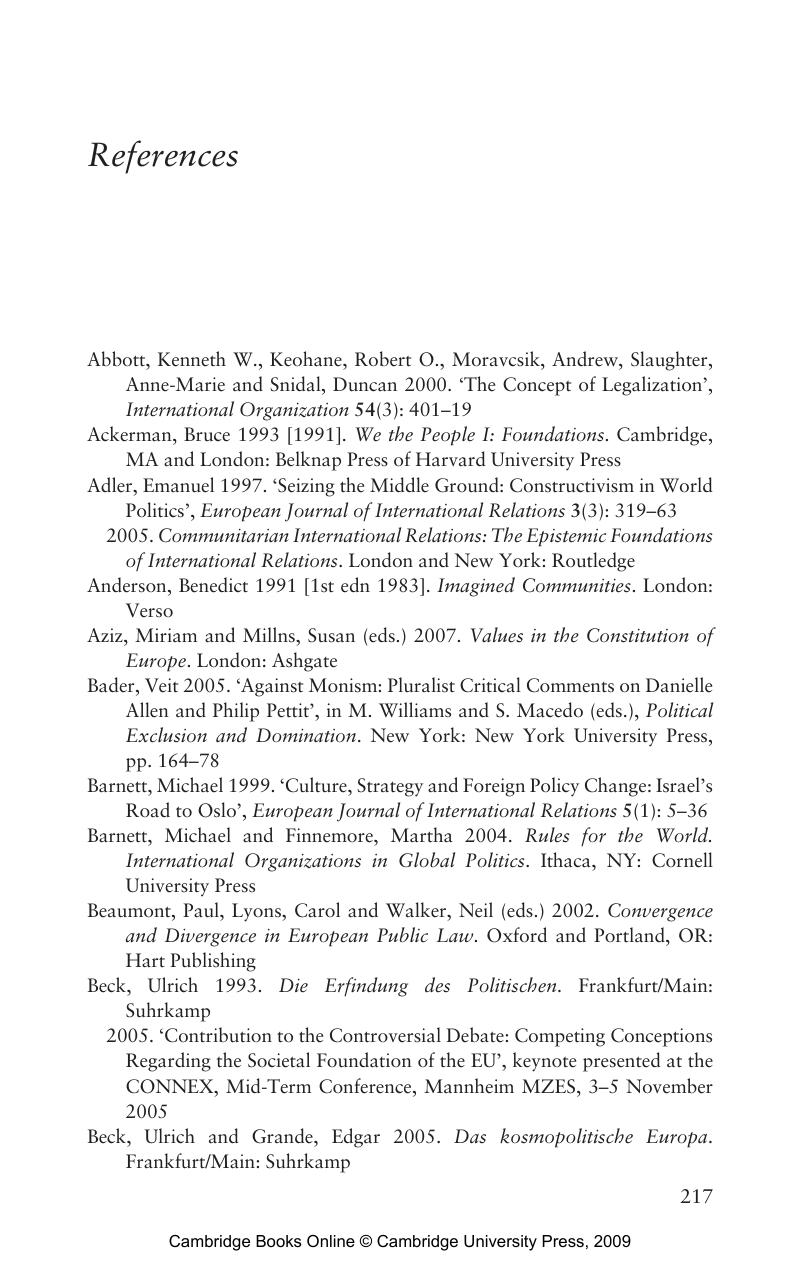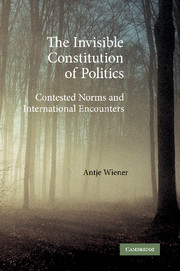References
Published online by Cambridge University Press: 22 September 2009
Summary

- Type
- Chapter
- Information
- The Invisible Constitution of PoliticsContested Norms and International Encounters, pp. 217 - 237Publisher: Cambridge University PressPrint publication year: 2008

